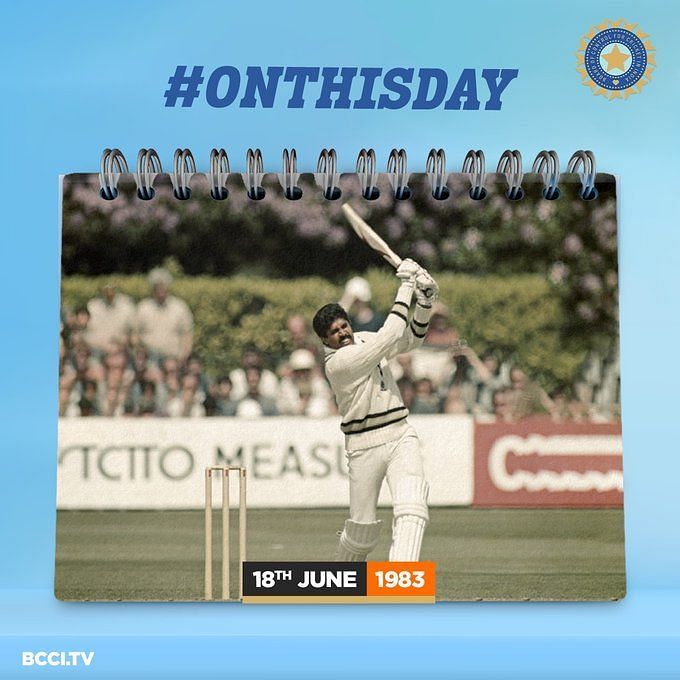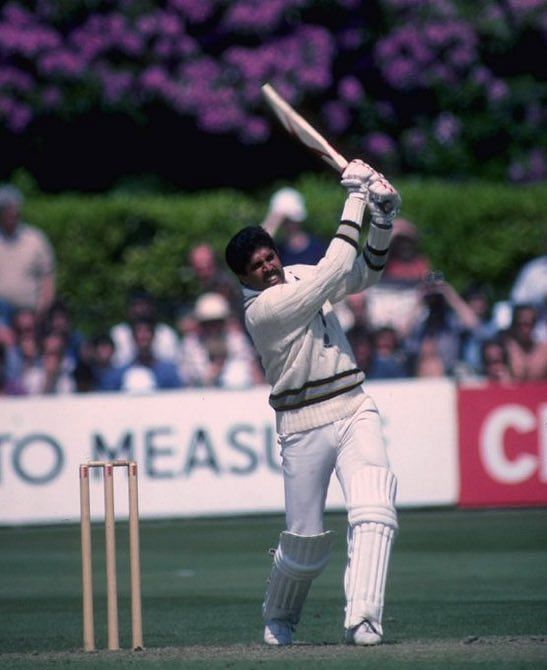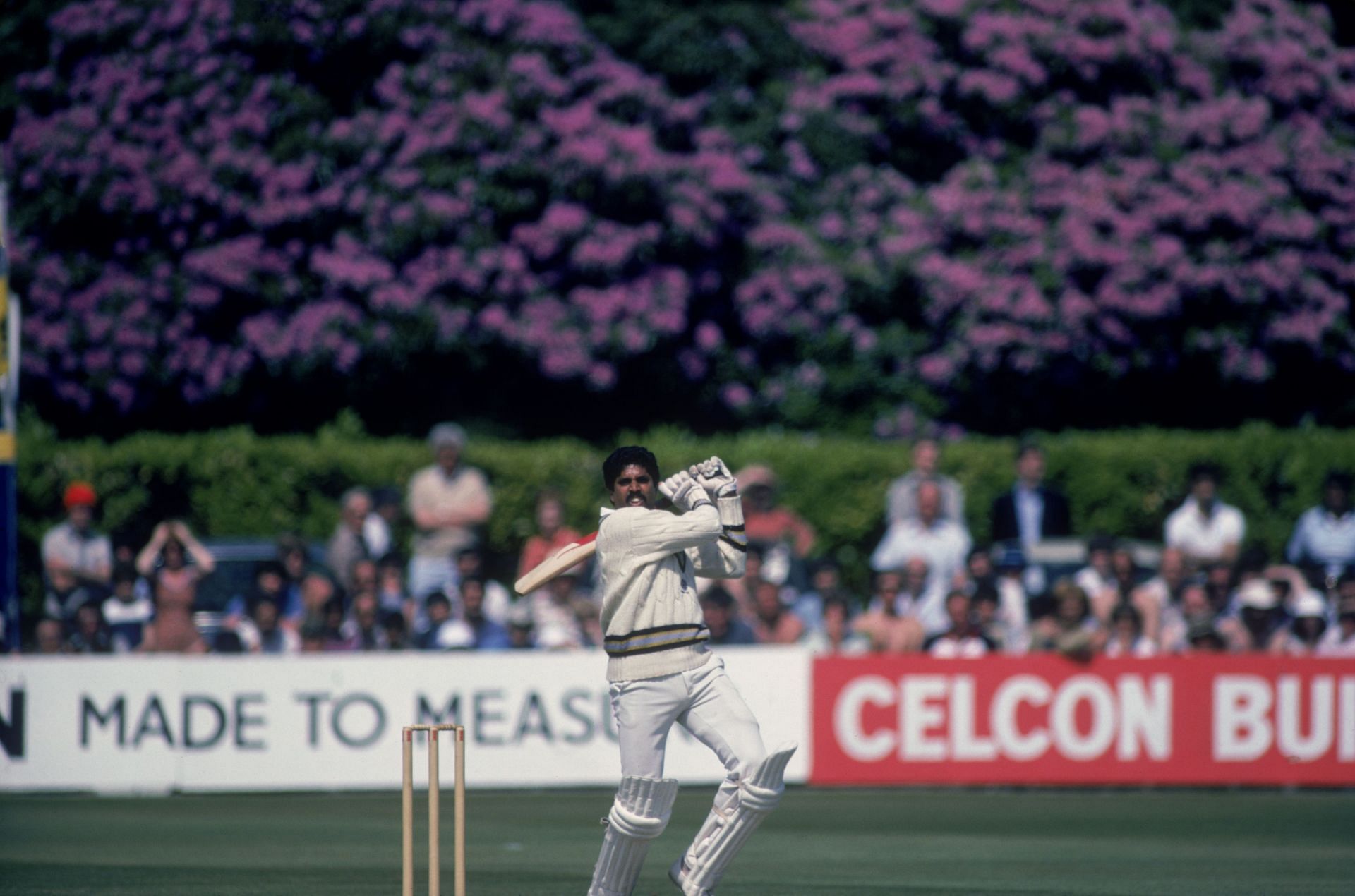
3 reasons why Kapil Dev's unbeaten 175 in 1983 World Cup is the greatest ODI innings ever
On this day, June 18, in 1983, former India captain Kapil Dev played a stunning knock in a World Cup game against Zimbabwe at Nevill Ground in Tunbridge Wells. This was a hugely important game for India after their mixed start to the World Cup campaign.
Team India kicked off their campaign with a stunning 34-run win over defending champions West Indies at Old Trafford in Manchester. They then got the better of Zimbabwe at Grace Road in Leicester by five wickets.
India, though, suffered losses in their next two games, and big ones at that. They were hammered by Australia by 162 runs in Nottingham and by the Windies by 66 runs at the Kennington Oval in London.
The Indians were undoubtedly pressure when they faced Zimbabwe in their fifth league match of the 1983 World Cup at Tunbridge Wells. However, Kapil Dev played one of the most astonishing one-day knocks to lift India to a morale-boosting 31-run win. The Indian captain smashed an unbeaten 175 off only 138 deliveries.
On the 40th anniversary of the epic knock, we look at three reasons why Kapil’s heroics can be considered the greatest ODI innings ever.
#1 It gave a nation belief that they could win from any situation

The win inspired by Kapil against Zimbabwe was more than just a win in a cricket game. In a sense it marked the start of a revolution in Indian cricket, which saw them go on to lift the 1983 World Cup and achieve many more glorious feats in the years to come.
The triumph in Tunbridge Wells gave India belief that they could win from any situation. Remember that Kapil did not come in with the cushion of runs. Instead, batting first, India were in complete doldrums. The scorecard read an embarrassing 17-5 when he arrived at the crease.
Sunil Gavaskar (0), Kris Srikkanth (0), Mohinder Amarnath (5), Sandeep Patil (1) and Yashpal Sharma (9) were all back in the hut in no time. Legend has it has Kapil was having a leisurely shower when he was sent an SOS and had to rush out to bat as India collapsed in inexplicable fashion.
Kapil, though, played a captain’s knock to lift India, with some support from lower-order batters like Roger Binny (22), Madan Lal (17) and Syed Kirmani (24*). India recovered to post 266-8 before restricting Zimbabwe to 235.
India went on to win the game by 31 runs, and they were a completely different team after that.
#2 The sheer audacity of Kapil Dev’s knock
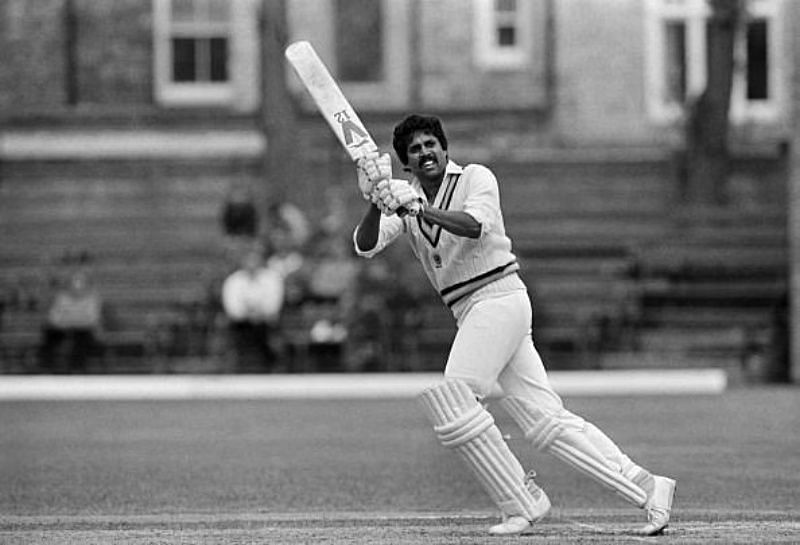
Another reason why Kapil’s 175 not out should be considered the greatest ODI innings is because of the sheer audacity of the knock.
As mentioned earlier, Team India had lost half their side with less than 20 runs on the board. Under such circumstances, batters are expected to be circumspect to try and rebuild the innings. Kapil took the reverse route and went berserk.
It was an approach fraught with risk, for if he had been dismissed cheaply going for a big hit, Kapil would have been criticised severely, particularly as he was the captain as well. The backlash could have been massive, and words like ‘irresponsible’ would have been thrown at him by critics.
Kapil, though, batted with exceptional confidence on the day. It was as if he knew he would not get out. As so, the hard-hitting batter ended up striking 16 fours and six sixes in an unforgettable exhibition of strokeplay.
There was something surreal about the knock, which unfortunately went unrecorded, as the World Cup’s sole broadcaster BBC was reportedly on strike. Kapil, though, was destined to lift India to victory and, subsequently, to World Cup glory.
#3 The knock changed Indian cricket forever
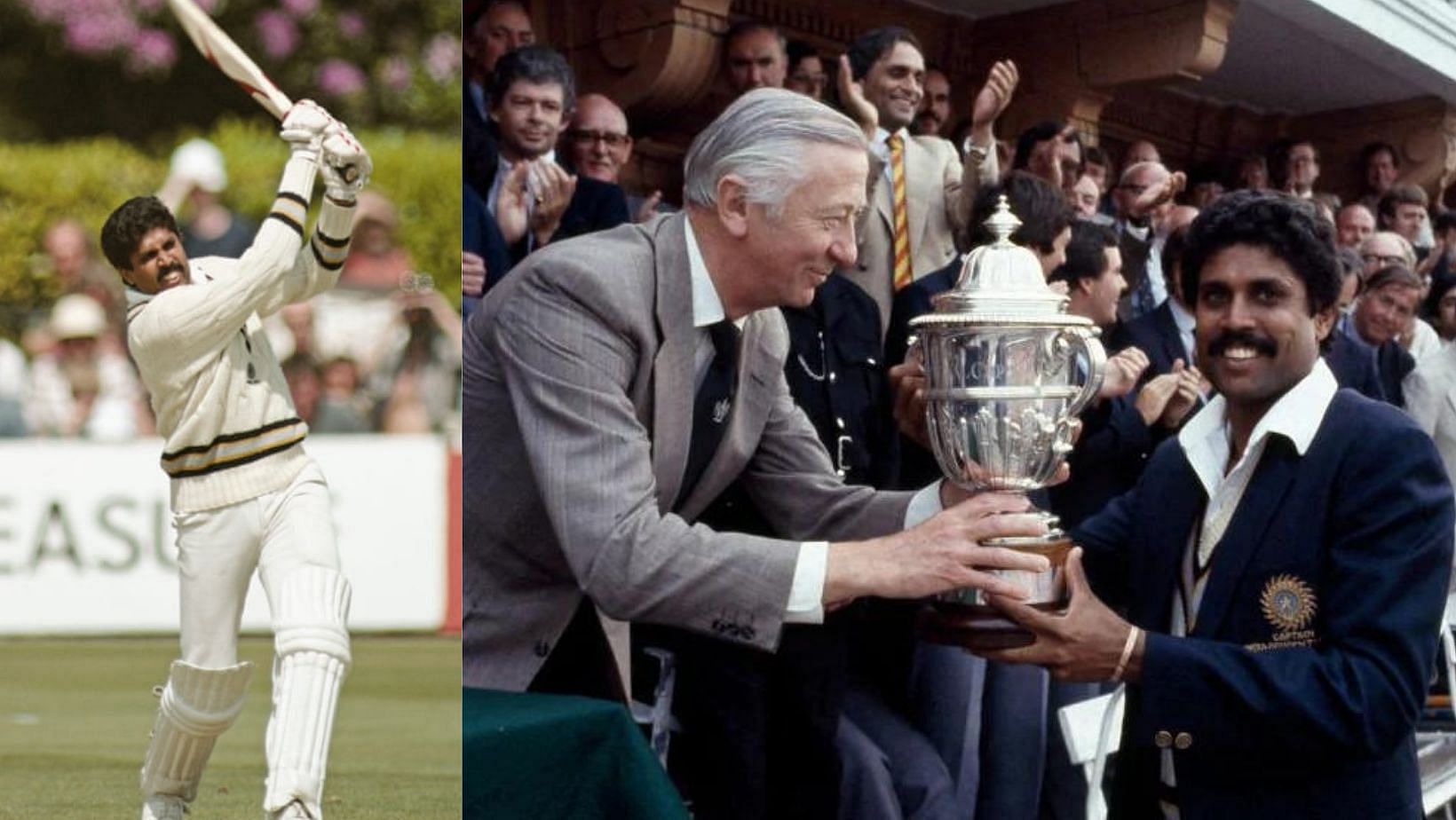
India did commendably well to beat England in the semifinal and West Indies in the final to win the 1983 World Cup at Lord’s. A few members of the squad, though, have admitted that Kapil’s knock against Zimbabwe was the turning point for them as far as the World Cup was concerned.
The shift in confidence was visible, as India went on to thrash Australia by 118 runs in their last league game at the County Ground in Chelmsford. In a dominating bowling display, Madan Lal and Roger Binny claimed four scalps apiece, as the Aussies were bundled out for 129. India continued their momentum into the knockouts, too.
It would be fair to say that had Kapil not played that blinder at Tunbridge Wells, India might not have gone all the way in the 1983 World Cup. Few knocks have had such a massive impact on a nation’s cricketing fortunes as Kapil’s daredevil 175*.
